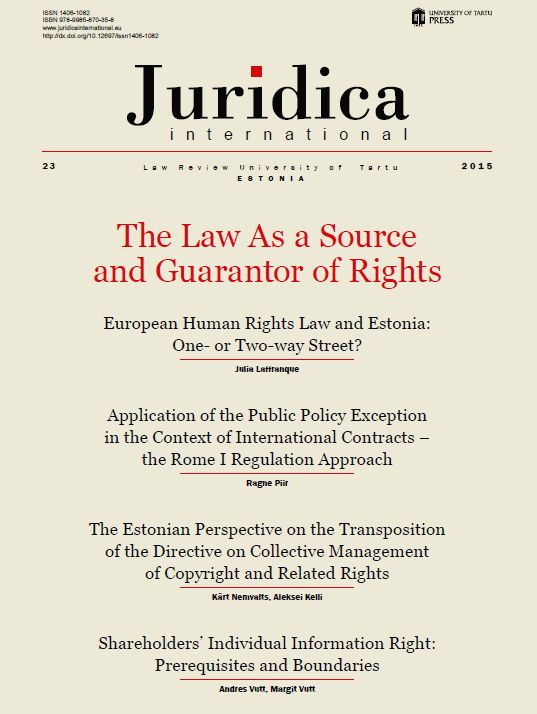Legal Remedies Available to Competitors of Recipients of Unlawful State Aid under Estonian Law
DOI:
https://doi.org/10.12697/JI.2015.23.11Keywords:
State aid, standstill obligation, recovery, interim measures, damage claims, procedural autonomy of Member States, Estonian lawAbstract
Article 108 (3) of the TFEU (imposing the ‘standstill obligation’) stipulates that Member States are obliged to notify the European Commission of pending state aid and wait for its approval. Breach of the standstill obligation requires effective remedies in order to protect the rights of individuals, which is a task for the national courts. National procedural autonomy is restricted only by the principles of effectiveness and equivalence. The article focuses on the legal remedies available in Estonian law to competitors to the aid recipient in the event of violation of the standstill obligation. Remedies include suspension of the payment of unlawful aid, recovery thereof and interest thereon, damages, and interim measures. The possible measures are derived from the State Liability Act and the Code of Administrative Court Procedure, under which potential aid is granted through an administrative act or measure, and the Law of Obligations Act, under which aid is granted through civil transactions. Aid recovery could prove to be especially difficult in those cases wherein aid has been granted on the basis of a legislative act, because Estonian law does not provide a sufficiently clear legal basis for ordering recovery of the aid in these cases.


